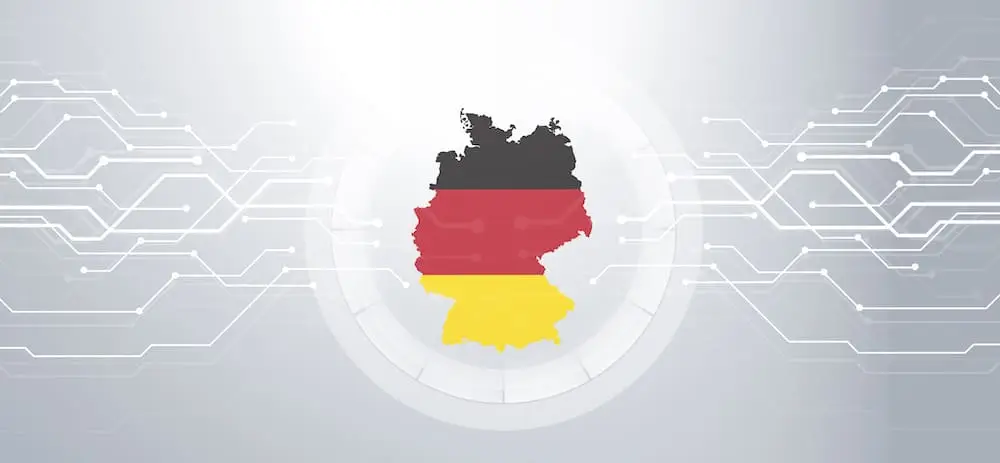Germany has a reputation as a hub for automotive innovations and engineering excellence. With top-tier Original Equipment Manufacturers (OEM) headquarters, such as Mercedes-Benz, automotive manufacturing facilities, a strong engineering workforce, and top-tier research institutions, there is momentum and potential for continued innovation in Germany. Factorial Energy, the U.S.- based solid-state cell manufacturer, recently announced its establishment of a new Germany entity to accelerate the commercialization of its next-generation solid-state batteries for electric vehicles (EVs) and expand its footprint into Europe. This blog post will dive into Germany’s staying power as a hub for automotive innovation and how renewable energy and zero-emission transportation goals across Europe make this place an ideal location for Factorial’s expansion.

Bridging Research and Applications for Batteries.
Germany is home to a wealth of R&D centers and prestigious institutions, including the Fraunhofer Society, Max Planck Institute, and a multitude of excellent academic groups that have been instrumental in driving cutting-edge research in the field of battery technology.
One example of Germany’s strong focus on battery research is the multi-million euro R&D cluster FESTBATT, funded by the Federal Ministry of Education and Research (BMBF). This cluster brought together the Justus Liebig University, Technical University of Munich, and University of Muenster to collaborate on next-generation battery technologies. In addition, research institutes like the Fraunhofer IFAM, IWS, and IPAT have played a critical role in bridging the gap between academic research and industry application. The recently established Fraunhofer Research Institution for Battery Cell Production (FFB) further serves as a platform for scaling technology from the lab bench to large scale manufacturing.
As a result of these efforts, Germany has fostered an extensive talent pool of engineers and researchers dedicated to advancing battery technology. Factorial Energy is proud to be part of this vibrant engineering community in Germany and has been fortunate to collaborate with a number of these prestigious institutions and researchers. The company’s partnerships with German institutions serve to not only advance Factorial’s own research and development efforts, but also to contribute to the overall advancement of the field of solid-state batteries.
Advancing towards climate-neutrality
In addition to Germany’s tech advancements in batteries and automotive sectors, the country is positioned to take advantage of European Union’s steps to achieving a more sustainable future. The launch of the ambitious Green Deal Initiative [1] aims to make Europe the world’s first climate-neutral continent by 2050. As part of this push, the EU is promoting the use of sustainable energy sources, such as electric vehicles, also reflected by the launch of the Battery Passport initiative by the Global Battery Alliance (GBA). The Battery Passport seeks to establish a circular economy for batteries, promoting the reuse of recycling of materials, and transparency on material sourcing. Additionally, the Green Deal Initiative is opening access to funding and financing for cleantech production in Europe[2]. With a local presence in Germany, Factorial Energy is well-positioned to participate in these initiatives, collaborate with leading industry players, and leverage the latest technology to accelerate the transition towards a greener future.
Manufacturing Excellence
Battery manufacturing has become increasingly important as electric vehicles become more mainstream. As a result, many battery manufacturing facilities are being built outside of China and closer to automotive partners to meet localized manufacturing goals[3]. Factorial Energy’s new entity in Germany allows the company to take advantage of this trend and work more closely with automotive partners in Europe. Having a local presence also means that the company can even further accelerate and support customer validation and testing.

The learnings from other industries such as automotive and aerospace can be transferred to the production and manufacturing of batteries. This cross-industry knowledge sharing can lead to faster innovation, better cost management and higher quality products.
With strong partnerships in Germany and Europe, Factorial Energy’s new entity is poised to leverage these benefits and sustain its push for innovation in the solid-state battery space.
Sources
[1] https://commission.europa.eu/strategy-and-policy/priorities-2019-2024/european-green-deal_en ]
[2] https://commission.europa.eu/strategy-and-policy/priorities-2019-2024/european-green-deal/green-deal-industrial-plan_en
[3] https://www.umlaut.com/en/stories/europe-battery-cell-production-is-getting-realdo.

